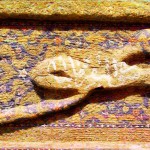Hawas-i Selime : Elements of cognition according to Islamic aqeedah
Hawas-i Selime is a concept in Islamic aqeedah related with how we perceive our world and how we process the information we receive from it. Hawas is the plural of hassa, its semantic roots has several layers of meaning related to words like cognition, understanding and faculty of perception. Selim means something that works and functions perfectly, something that is right and sound. This concept is also called Hawas-i Hamse which is “five organs of perception” where hamse means five.
Science can tell us that there are our five organs for “knowing” but for Islamic scholars there is more to this argument. Tasawwuf terms like batin and zahir has also a semantic role for clearer acknowledging of Hawas-i Selime, or Hawas-i Hamse. We already know that batin means “interior” and zahir means “exterior”. Islamic scholars preferred to divide Hawas-i Hamse into two by Hawas-i Hamse-i Zahira, which would mean our five organs of perception as science defines it, but in order to process “correctly” that information derived from this channel, one would need the compliance of “Hawas-i Hamse-i Batini”, the core and inner faculties of perception of one’s “nafs”, in order words, our soul.
There are five sub-faculties of “Hawas-i, Hamse-ı Batini” according to Islamic aqeedah. There was such need of classification by Islamic scholars since “regular perception” is never enough to understand the universe around us in its full integrity.
We can look at the world with our eyes but do we really “see” what is visible to our eyes?
How is the process happens inside our souls when one says “Finally, I started to see things differently”?
To find answer to such questions, such a distinction of batini-zahiri faculties were needed.
These five sub-faculties of Hawas-i Hamse-i Batini are as follows :
Hiss-i Mushtareq : Common Sense
Mutahhayile : Power of Mental Imagination
Wahime : Apprehension
Hafiza : Memory
Mutassarifa : Power of carefully using these resources
When we give meaning to world, our exterior faculties transmit information about our surroundings and we process this information by using these sub-faculties.
However, Holy Quran emphasizes one “general” organ, which is the “heart” as if it is “central processing unit” of these all organs, whether they are interior or exterior.
There are many ayats that warn mankind about to judge fairly and soundly about what people see and hear about the universe and not fall into to trap of “denial”, the denial of existence of Allah(j.j)
And verily We had empowered them with that wherewith We have not empowered you, and had assigned them ears and eyes and hearts; but their ears and eyes and hearts availed them naught since they denied the revelations of Allah; and what they used to mock befell them. (Sura Al-Ahqaf 46/26)
According to a hadith from Bukhari collection, Prophet Muhammad(saw) says “Beware of one organ in your body, if that is healthy, the whole of your body will be healthy, if that’s unhealthy, the whole body is unhealthy, be careful, that organ is the heart”
Therefore, the cognition process in Islam is deeper than just “physical abilities of our interactions with the world”
Having “eyes and ears” is never enough to make a meaning our of the immense stream of data around us, as Holy Quran says :
Many are the Jinns and men we have made for Hell: They have hearts wherewith they understand not, eyes wherewith they see not, and ears wherewith they hear not. They are like cattle,- nay more misguided: for they are heedless (of warning). (Al-Araf 7/179)









You must be logged in to post a comment Login